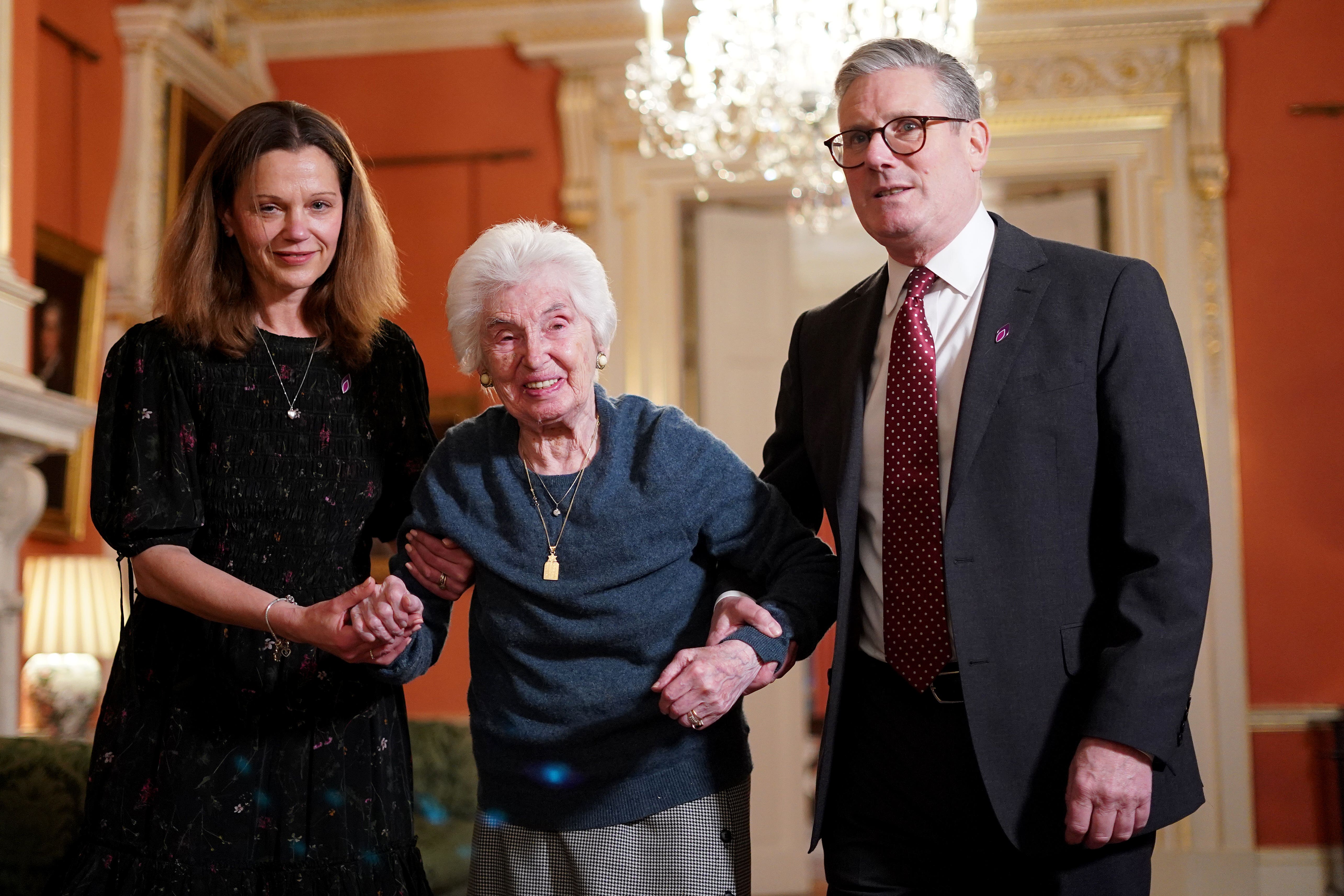Holocaust survivor describes ‘sitting and waiting to die’ in Bergen-Belsen
Renee Salt, 95, found Bergen-Belsen ‘even worse’ than Auchwitz ‘because you were brought there just to sit and wait to die’.

A Holocaust survivor has recalled how Bergen-Belsen was “even worse” than Auchwitz “because you were brought there just to sit and wait to die”.
Renee Salt told Sky News’ Sunday Morning With Trevor Phillips that the Nazis had stopped counting people by the time she arrived in Bergen-Belsen as a teenager because people were dying so rapidly.
Her late husband Charles Salt helped liberate the camp and, ahead of Holocaust Memorial Day on Monday, she said: “We didn’t talk about it, we couldn’t.”
Mrs Salt, 95, was born in Zdunska Wola, Poland, in 1929 and later lived in a ghetto established there.
In 1944, she was sent to Auschwitz-Birkenau with her parents.
She and her mother were then transported to a warehouse in Hamburg harbour, Germany, where she worked on demolition.
The pair were sent to Bergen-Belsen in March 1945. They were separated during the journey but found each other again inside the camp.
The British Army liberated them on April 15 1945 but her mother died in hospital 12 days later.
Describing her experience, she told Sky News: “There was nothing to eat, nothing to drink – the water had been cut off already when I got to Bergen-Belsen.
We didn't have the strength to talk any more but her presence alone kept me going
“The daily counting of the people stopped already because there was no point counting anyone – for every thousand people alive in the morning, there would only be 700 or 800 people alive in the afternoon, that’s how quick people were dying, so there was no point counting any more.
“There were no more roll calls, nothing to eat at all, there was nothing – apparently bread stopped being supplied to people two weeks before I got there”.
Mrs Salt said she would not have survived without her mother.
“We didn’t have the strength to talk any more but her presence alone kept me going,” she told the programme.
“It was terrible, we saw the corpses, it was so frightening – you never know when your next minute was to die.”
She went on to marry one of the soldiers who liberated Bergen-Belsen.
Her husband “couldn’t talk about Belsen, the tears were running down his face, he couldn’t talk about Belsen”, she said.
“We didn’t talk about it, we couldn’t.”
Asked why retelling testimonies like hers is important now, she told the programme: “Because perhaps we can avert another holocaust from coming.”
Mr Phillips asked her if there is a chance the Holocaust could happen again.
Mrs Salt replied: “There is a strong possibility, we hope that it will never happen again, we can only hope and pray, that (it) should quieten down.”
The scale of the Holocaust could be forgotten if stories like hers are not shared, she added.
Mrs Salt praised the Holocaust Educational Trust for creating young ambassadors to help pass on testimonies.
“People do forget, but I hope they won’t this time,” Mrs Salt said.
Bookmark popover
Removed from bookmarks